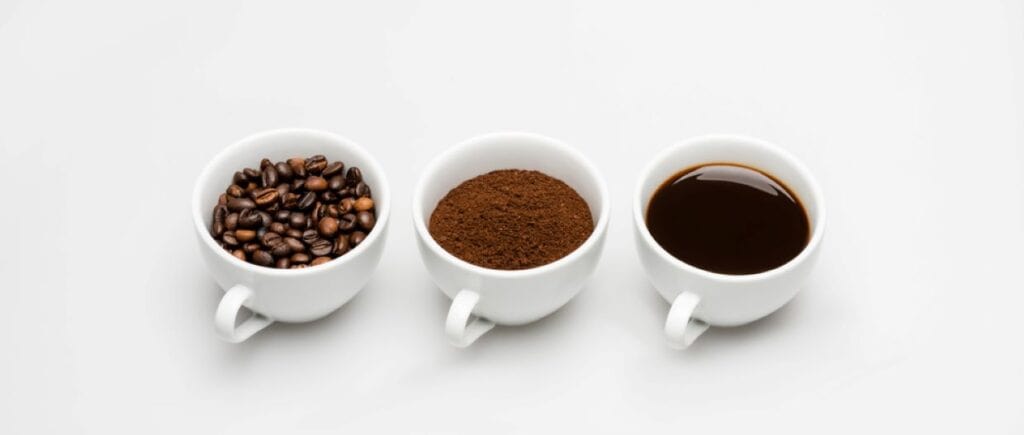Are you caught in the daily ritual of enjoying a cup of coffee but left wondering, ‘Does coffee break a fast’? Uncover the surprising truths behind coffee and fasting that everyone needs to know. It may reshape how you view your morning brew.

These statements have not been evaluated by the Food and Drug Administration. Please see the disclaimer below for more information.
When considering the effects of coffee on fasting, one often wonders if this favorite beverage disrupts the fasting process. More importantly, does coffee break a fast? Fasting involves cycling between periods of eating and abstaining from food. It is as simple as that. The primary concern for fasters is whether consuming coffee would negate the metabolic state of fasting, which is essential for its benefits.
Drinking coffee during a fasting window is a practice among many fasters, as it is a very common way to get the day started. According to Healthline, some of the benefits of drinking coffee are curbing appetite and boosting metabolism.
However, one critical factor to consider is what you add to the coffee. Plain black coffee is generally considered acceptable during fasting because it contains minimal calories. On the other hand, adding syrups, sugar, milk, cream or even homemade MudWtr could potentially break the fast by providing a substantial number of calories and initiating an insulin response.
The debate about black coffee and fasting is ongoing as research continues to evolve. The current understanding of Clinical Nutrition suggests that moderate consumption of black coffee should not significantly impact blood glucose levels. But to ensure one stays on the safe side, it’s recommended to stick to black coffee with no additives when fasting.
Fundamentals of fasting
In the journey of understanding how fasting affects the body, grasping the basics sets the foundation for recognizing its impact, including answering whether coffee breaks a fast.
Fasting refers to the voluntary abstention from all or some foods or drinks for a period of time. It typically begins at the consumption of the last meal and continues until the next meal or snack. Periods of fasting can vary from a few hours to days, depending on the individual’s goals and the type of fast they are undertaking.
Purpose and benefits
Individuals choose to fast for various reasons, such as religious practices, medical procedures or personal health. The Mayo Clinic finds that the benefits of fasting include weight loss, improved metabolic health, reduced inflammation and so much more. A study from Cell Cycle shows that fasting can also promote autophagy, the body’s way of cleaning out damaged cells, which may offer protective benefits against several diseases.
Types of fasting
Fasting comes in various forms, each with its own set of rules and durations, catering to different goals and lifestyles. Intermittent fasting, one of the more popular methods, involves alternating cycles of fasting and eating. A common regimen is the 16/8 pattern, where individuals abstain from food for 16 hours and allow themselves an 8-hour window for meals. On the other hand, extended fasting stretches over much longer periods, typically from 24 hours to several days or even weeks, during which only water and occasionally low-calorie liquids are consumed.
“I’ve been using intermittent fasting for 10 years now, and coffee is a huge part of it. I drink my coffee black so it doesn’t break my fast — coffee and sugar in coffee still count and will break your fast early — and it works wonders for sorting through the brain fog when you first start fasting, keeping energy up and curbing hunger.”
— Shelby, Fit as a Mama Bear
Another variant gaining traction is time-restricted feeding, which narrows eating times to specific hours of the day, potentially aligning with the body’s circadian rhythms for improved metabolic outcomes. There’s also the 5:2 diet, a form of intermittent fasting where individuals eat normally for five days of the week and reduce calorie intake significantly on the other two days, offering a flexible approach to calorie restriction and weight management.
Each of these fasting methods can offer a unique pathway to wellness. They allow individuals to select a fasting regimen that fits their lifestyle, health goals, and dietary needs.
Impact of coffee on fasting
Coffee plays a fascinating role in the body’s health and maintenance processes. Of particular interest is its role in autophagy and blood sugar regulation.

Coffee and autophagy
Autophagy, the body’s mechanism for clearing out damaged cells to make way for new, healthy ones, is a critical process for maintaining cellular health and function. As discussed, research indicates that the components found in black coffee may support autophagy, especially during fasting periods. However, it’s important to note that the research is ongoing, and a comprehensive understanding of coffee’s impact on this process is still developing.
Caffeine’s effects on insulin and blood sugar
Coffee and blood sugar have an intricate relationship. Caffeine can have a moderate effect on insulin sensitivity and blood sugar levels. A small portion of research shows that caffeinated coffee has the potential to alter blood sugar control, but these effects tend to be minimal if coffee is consumed without sweeteners or creamers.
Black coffee vs. additives
When it comes to fasting, the purity of coffee intake becomes crucial. Black coffee, consumed without any additives, is generally considered not to break a fast, allowing individuals to enjoy the beverage without disrupting the fasting state. However, introducing sugar, cream or any flavorings into coffee can increase calorie intake and potentially interfere with the benefits of fasting.
As such, paying attention to what goes into their coffee is vital for those observing a fast, ensuring they maintain the intended fasted state. This nuanced understanding of coffee’s interaction with autophagy and fasting underscores the importance of considering both the type of coffee and its consumption method in relation to health goals and dietary practices.

One hotly debated topic is that of bulletproof coffee. In the low-carb and keto communities, there is much disagreement about whether adding fat to your coffee breaks a fast.
Practical guidelines
When considering the question, ‘Does coffee break a fast?’, specific guidelines can help individuals maintain their fasting goals. These rules revolve around the timing of coffee consumption, the types of coffee one might choose, and suitable alternative beverages.
Alternative beverages
If an alternative to coffee is desired, other beverages may be suitable for fasting, including:
- Water: Plain or infused with herbs like mint or slices of cucumber.
- Tea: Green, black, or herbal teas are acceptable as long as they are calorie-free and consumed without added sweeteners or milk.
- Bone broth: A low-calorie option providing protein and nutrients; best reserved for eating periods for strict fasting protocols.
Remember, sticking to zero-calorie beverages, zero-calorie sweeteners and avoiding additives that contribute to calorie intake is crucial during fasting windows. This ensures the fast is not broken.
Trina Krug, MS, CDSP is a holistic nutritionist, recipe creator and advocate for human health. Her passion for low carb lifestyles, gluten free eating and real nutrition education has led to the creation of Trina Krug. She spends her time creating recipes, hanging out with her family on her farm and actively working on her Doctor of Science in Integrative Health.
These statements have not been evaluated by the Food and Drug Administration. The contents of this article, made available via Food Drink Life, are for informational purposes only and do not constitute medical advice. The content presented here is not intended to be a substitute for professional medical advice, diagnosis or treatment. Always seek the advice of a qualified healthcare provider with any questions you may have regarding a medical condition or dietary changes. Reliance on any information provided by this article is solely at your own risk.